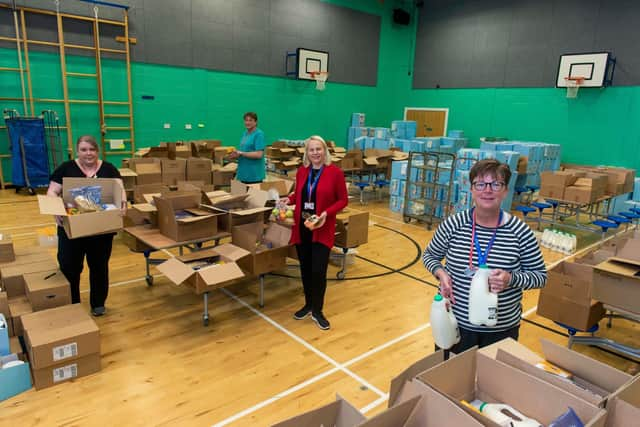Analysis: Cost-of-living crisis is piling undue pressure on Scottish teachers and leaving them with less time to teach
There has been much discussion in recent weeks and months about the impact of the Covid-19 pandemic on Scottish schools.
Disruption caused to the education of pupils has been blamed for worsening behaviour and falling attendance rates, as well as Scotland’s decline in international rankings.
Advertisement
Hide AdAdvertisement
Hide AdThere is little doubt the lockdowns in 2020 and 2021 accelerated existing trends, at least.


But testimony from staff on the front line in education and social work increasingly suggests the cost-of-living crisis is also a significant factor.
Many families have clearly been pushed deeper into poverty as prices have risen, meaning they can no longer always afford to feed and adequately clothe their children.
Teachers are dealing with the impact as more and more youngsters turn up at school hungry, cold and unprepared for lessons. Others do not go to school at all.
Last month, Shelley McLaren, head teacher at Edinburgh’s Craigroyston High School, told how she and other staff deliver food parcels to families in the community on a near-daily basis, in a way that was not required a few years ago.
"People are really struggling,” she told The Scotsman.
Teachers are also increasingly involved in applying for emergency grants from charities such as Aberlour, to try to help pupils who are not ready for learning.
One Scottish teacher, involved with Aberlour, said: “The role of a teacher is very different from what it was previously. My aunty was a teacher and things have definitely changed.
"There needs to be a role for nurture, especially when some kids have so many barriers before they even step foot in a classroom, but our job as teachers is to educate. So, we need to find a balance.”
Advertisement
Hide AdAdvertisement
Hide AdThis is true. Such teachers will no doubt want to help their pupils in any way they can, but it should not always be left to them.
Nor, indeed, should it be up to charities like Aberlour to intervene.
These issues extend far beyond education, but school staff need help, as do their pupils.
If they eventually get it, the outlook relating to attendance, behaviour and performance might improve.
Comments
Want to join the conversation? Please or to comment on this article.
